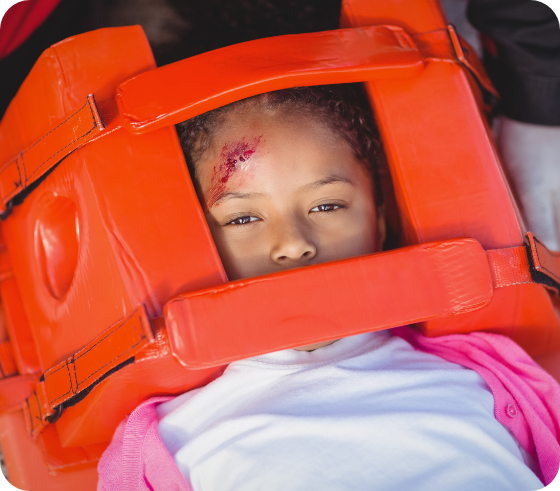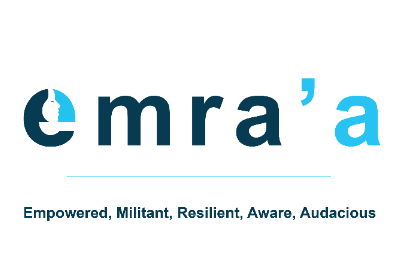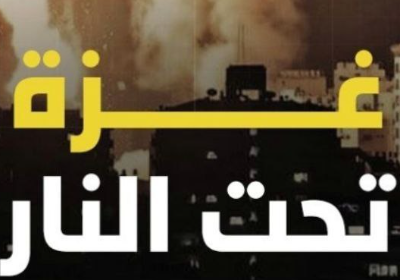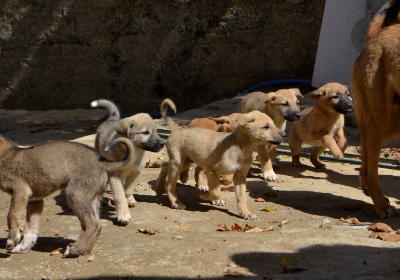Ecole St Vincent- Besançon- Baskinta
Ecole saint Vincent - Besançon Baskinta
« Toujours en avant "
______
En 1904, répondant à l’appel de l’Église du Liban, les Sœurs de la Charité de Sainte Jeanne Antide (Besançon) ont planté les premières racines d’une mission éducative au service des enfants de notre pays. Au fil du temps, leur mission continue de grandir et d’évoluer au grès des besoins de la société : accueil des orphelins, éducation des filles, formation humaine, intellectuelle et spirituelle de toute une jeunesse.
Aujourd’hui, notre école est comme un arbre aux branches multiples :
- Une école académique du préscolaire jusqu’au brevet.
- Une école technique avec deux spécialisations : Hôtellerie et Informatique / Comptabilité.
- Un internat accueillant enfants de tout le Liban, de toutes cultures et religions, en grande précarité (de 6 à 18 ans).
- Une garderie pour les enfants de 1 à 3 ans.
Nos élèves peuvent suivre des parcours diplômants reconnus par l'État : le cursus du Brevet Professionnel (BP1, BP2), et par la suite celui du Bac Technique (BT1 à BT3) qui leur ouvrent la voie vers l'autonomie professionnelle.
Notre école, qui est un établissement catholique, francophone et reconnu comme ONG, accueille environ 340 élèves accompagnés par 50 enseignants et membres du personnel administratif.
Bien plus qu’un lieu d’enseignement, elle est un lieu de vie et d’espérance où chacun y est accueilli, écouté et soutenu. Nous croyons en une éducation qui donne du sens à la vie, qui fait grandir en humanité, en responsabilité et en liberté. Une éducation qui apprend aux jeunes à mettre leurs talents au service du bien commun et les prépare à construire une société plus juste, plus fraternelle, plus belle.
Mais depuis octobre 2018, à l’image de notre pays, notre école traverse une succession de crises profondes. L’État ne nous verse plus les aides auxquelles nous avons droit pour l’institution sociale et pour les écoles primaire et technique. Les familles, elles aussi, sont durement touchées. Près de 50 % des parents sont au chômage ou ne reçoivent qu’un demi-salaire et peinent alors à payer les frais de scolarité.
Et pourtant, nos équipes restent mobilisées et continuent d’accueillir, former et accompagner tous nos élèves sans exception. Chaque jour, avec foi et courage, nous poursuivons notre mission et continuons de semer les graines du savoir et de l’apprentissage.
Ainsi dans ce contexte sans précédent, où nous sommes dans l’incapacité de répondre aux besoins croissants du fonctionnement de l’établissement mais cherchons malgré tout à honorer nos engagements envers notre personnel éducatif et à alléger le fardeau financier des familles, nous avons besoin de vous.
Aujourd’hui, plus que jamais, nous faisons appel à la générosité de nos amis et de nos bienfaiteurs. En parrainant un orphelin ou un élève en grande difficulté sociale ou financière, ou en participant au fonctionnement ou développement de l'etablissement, vous devenez un maillon d’une grande chaine humaine, contribuez à faire vivre notre mission éducative et maintenez allumée la flamme de la connaissance, de la vie et de l’espérance dans les yeux de tous nos élèves, sans exception.
Une vidéo qui présente l’école est disponible sur le lien suivant :
https://youtu.be/S-5kZyyz_sA
Une vidéo qui présente l’école technique
https://youtu.be/v9QELpCA65k
Une vidéo qui présente l’internat
https://www.youtube.com/watch?v=3bRp_jnj4f4
Une vidéo d’appel à la solidarité est disponible sur le lien suivant :
https://youtu.be/uzo-4Wr3fgM
Pour effectuer un don par virement bancaire direct
Banque : SOCIETE GENERALE DE BANQUE AU LIBAN
Agence : JAL EL DIB
SWIFT : SGLILBBX
Bénéficiaire : SŒURS DE LA CHARITE DE BESANCON
Du Liban
No du compte : 01 0144291 010 422 (devise LBP)
IBAN : LB68001900000010144291010422 (devise : LBP)
De l'étranger
No du compte : 010144291010840 (devise USD)
IBAN : LB34001900000010144291010840 (devise : USD)
Dossier de presse:
École st Vincent , Besançon
Adresse : Baskinta, El Metn, Mont Liban, Liban
Téléphone : + 961 04 288005 + 961 04288817
Site: www.besancon.edu.lb
Email : baskinta@besancon.edu.lb
Facebook : https://www.facebook.com
Instagram: https://instagram.com/besancon
Linkedin: https://www.linkedin.com/in/besancon-baskinta
Youtube : https://youtube.com/@besanconbaskinta2465
Saint Vincent School - Besançon Baskinta
« Always moving forward »
In 1904, responding to the call of the Church in Lebanon, the Sisters of Charity of Saint Jeanne Antide (Besançon) laid the foundations of an educational mission dedicated to serving the children of our country. Over time, their mission has continued to grow and adapt to the evolving needs of society: caring for orphans, educating girls, and fostering the human, intellectual, and spiritual development of generations of youth.
Today, our school is like a tree with many branches:
- An academic school from preschool through to the Brevet.
- A technical school offering two specializations: Hospitality and IT/Accounting.
- A boarding facility welcoming vulnerable children from across Lebanon, of all cultures and religions, aged 6 to 18.
- A daycare center for children aged 1 to 3.
Our students can pursue state-recognized diploma programs: the Brevet Professionnel track (BP1, BP2), followed by the Baccalauréat Technique (BT1 to BT3), paving the way to professional independence.
Our school, a Catholic and French-speaking institution recognized as an NGO, welcomes around 340 students, supported by 50 teachers and administrative staff.
More than just a place of learning, it is a place of life and hope, where everyone is welcomed, heard, and supported. We believe in an education that gives meaning to life, one that nurtures humanity, responsibility, and freedom. An education that teaches young people to use their talents in service of the common good and prepares them to build a more just, fraternal, and beautiful society.
Since October 2018, like our country, our school has been going through a series of deep crises. The state no longer provides the financial support we are entitled to for our social institution and for the primary and technical schools. Families have also been severely affected: nearly 50% of parents are unemployed or receive only half a salary, making it difficult for them to pay school fees.
And yet, our team remain committed and continue to welcome, educate, and support all our students without exception. Every day, with faith and courage, we carry on our mission, sowing the seeds of knowledge and learning.
In this unprecedented context where we are unable to meet the growing operational needs of the school but are still striving to honor our commitments to our educational staff and ease the financial burden on families, we need your support.
Today, more than ever, we appeal to the generosity of our friends and benefactors. By sponsoring an orphan or a student facing severe social or financial hardship, you become part of a powerful human chain, helping sustain our educational mission and keeping the flame of knowledge, life, and hope alive in the eyes of all our students, without exception.
A heartfelt thank you for your generosity,
The Sisters of Saint Vincent School
More about Baskinta
Watch the school video: https://youtu.be/S-5kZyyz_sA
Watch the technical school video: https://youtu.be/v9QELpCA65k
Watch the boarding school video: https://www.youtube.com/watch?v=3bRp_jnj4f4
A solidarity appeal video is available at the following link: https://youtu.be/uzo-4Wr3fgM
To make a donation via direct bank transfer:
Banque : SOCIETE GENERALE DE BANQUE AU LIBAN
Agence : JAL EL DIB
SWIFT : SGLILBBX
Bénéficiaire : SŒURS DE LA CHARITE DE BESANCON
Du Liban
No du compte : 01 0144291 010 422 (devise LBP)
IBAN : LB68001900000010144291010422 (devise : LBP)
De l'étranger
No du compte : 010144291010840 (devise USD)
IBAN : LB34001900000010144291010840 (devise : USD)
DOSSIER DE PRESSE
École st Vincent Besançon
Adresse : Baskinta, El Metn, Mont Liban, Liban
Téléphone : + 961 04 288005 + 961 04288817
Site: www.besancon.edu.lb
Email : baskinta@besancon.edu.lb
Facebook : https://www.facebook.com
Instagram: https://instagram.com/besancon
Linkedin: https://www.linkedin.com/in/besancon-baskinta
Youtube : https://youtube.com/@besanconbaskinta2465
COLLECTED TO DATE
COLLECTED TO DATE
$440













